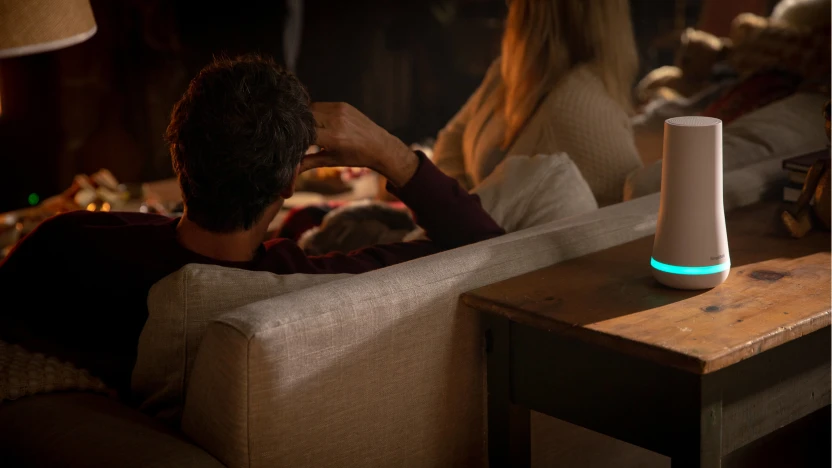Convenient for larger homes.
No need to purchase and connect many pieces of wireless equipment, because a wired system will span the entire property.
Attractive to those who like having control panels in every room.
Might be more familiar to those who are not used to wireless systems/apps, smartphone technology, etc.
Easy to install because wired systems almost always come with professional installation.
May have issues if the power goes out or power is cut. Though most wired systems’ monitoring won’t be impacted in a power outage, intruders can cut the wires. Be sure to ask if there is a backup or alert system in place if power/wires are tampered with!
Expensive. Installing wired security systems is often much more expensive than wireless home security systems.
Not as much flexibility in terms of customization regarding plans and equipment. They typically require a contract.
Can’t always be monitored from multiple devices.
Generally only serves one purpose; not as many features or extensions to choose from.
Less personal control of the system. Everything is hardwired, so adding or removing equipment is more complicated.
Cumbersome for smaller homes or apartments.
First and foremost, no wires! This means anyone can purchase a security system for their home without having to worry about complicated hardwiring processes.
Generally more affordable, or at least customizable to your specific budget.
Highly customizable with many features to take advantage of. For instance, if you’re looking to monitor your package delivery or ensure your kids are safe when they are home alone, you could opt to add outdoor and indoor security cameras.
Don’t have to worry about power outages potentially affecting the security system.
No complicated contracts to deal with.
Many providers offer self-monitoring and professional security monitoring options.
Convenient for both large and small homes.
If your WiFi isn’t stable, you need to make sure you have a reliable cellular network in the range of your system.
Might be difficult for those unfamiliar with technology to take full advantage of the perks of the security system, such as smartphone monitoring and in-app control.
Self-installation might be daunting for some (a SimpliSafe system can typically be set up in minutes, but professional installation options are available too).
You might have to purchase additional features to get the most out of your system.
Wired vs. wireless home security systems
Posted March 3rd, 2022 by SimpliSafe

So, you’re thinking of installing a home security system, but there are a lot of decisions to make. From choosing between a DIY or pro-installed security system to deciding what equipment makes sense for your home and budget, securing your home can feel overwhelming.
Here’s another consideration: wired or a wireless security system. In this guide, we’ll provide you with expert tips to help you make the right choice for your home!
What is a wired home security system?
A wired home security system must be physically attached to a network of wires in your home. To power and trigger the system, the wires that the home security system is connected to are fed into a central hub that can provide power to the equipment and system. In monitored wired home security systems, the equipment might also be wired to a landline in order to automatically notify the authorities in the event of a break-in or emergency.
Pros & cons of a wired home security system
A wired home security sounds pretty straightforward, and that’s because it is! But, there are some pros and cons you might want to consider to see if this option is right for you:
Pros:
Cons:
What is a wireless home security system?
A wireless home security system is a security system that connects to a WiFi or cellular network. This means that the equipment doesn’t need to be hardwired to a control panel in the house or connected to a landline to be monitored. Everything is done over the wireless network, which means you’ll need WiFi or access to a cellular network for the system to operate.
Pros & cons of a wireless home security system
Wireless security systems are becoming much more popular as an alternative to traditional wired security systems. With maximum flexibility, wireless systems make it easy for anyone to customize their home security system to their needs. Though wired systems are a great fit for some individuals and families, you might find that the benefits of a wireless security system outweigh the downsides.
Some people might be wondering whether wireless security systems are reliable or if wireless security systems are safe. The answer is they are just as safe as wired systems, and with the ease of use presented by wireless systems, many homeowners are finding them a better fit overall. Let’s find out more:
Pros:
Cons:
Wired vs. wireless security systems: which one is right for your home?
At the end of the day, only you can choose whether a wired or wireless home security system is the best choice for your home. But, if you’re not ready to commit to something long-term either way right now, then a wireless home security system with no contract is most likely a good place to start. You can purchase equipment and a monitoring plan that fits your needs, without having to undergo the complex installation process for a wired security system.
Want to learn about how to get started with a wireless security system? Start by meeting the system.